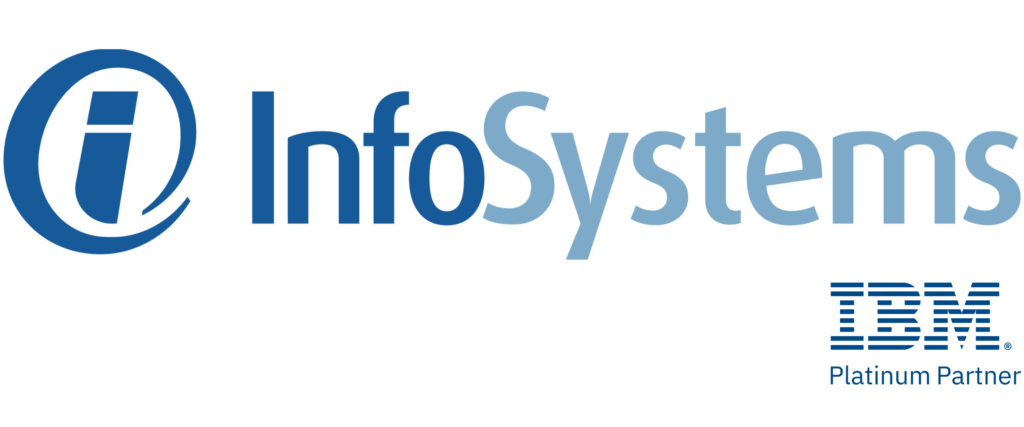Guide to Proactive IT Strategy
Why should I care about a proactive IT strategy for my business?
Make data-driven decisions
Anticipate future risk
Experience growth
Table of Contents
The Importance of Proactive IT Strategy for Small Businesses
Most small to medium-sized businesses (SMBs) forget they need IT support until something breaks.
Many SMBs experience the benefit of a smoothly functioning IT system without giving it much thought. Yes, they may have a single sign-on procedure that garners eye rolls when users have to switch applications. But most of the time, everything just works.
This is most likely the result of a carefully designed and implemented IT strategy. Successful modern businesses consider their IT strategy their foundation for operations. Without a solid IT strategy, you’re at risk of cyber attacks that could have serious ramifications on your business, such as:
- Data breaches
- Financial loss, and
- Reputation damage
When this happens to businesses, it’s often because they choose to wait to establish an IT strategy.
If you choose to wait, you do so at your own risk.
Because at the rate cybersecurity risks can evolve, your company’s IT strategy can become obsolete in a matter of weeks (or less) if not closely monitored.
In previous years, bad actors were small-time criminals who would go after the biggest businesses. That meant SMBs didn’t have to worry about ransomware or other cyber attacks. But now, entire organizations focus on infiltrating and exploiting weaknesses found in smaller companies.
Here are some stats you should know:
- 43% of cyber attacks annually are on small businesses.
- 46% of cyber attacks are on small businesses with 1,000 or fewer employees.
- In 2020, small businesses faced 700,000 attacks, causing $2.8 billion in damages.
- Cybercrimes are only likely to increase.
Unfortunately, only 14% of SMBs have an IT strategy for addressing cyber attacks. Perhaps that’s why cyber attacks end up being so costly for SMBs.
For instance, in 2021, Verizon found that cyber attacks required SMBs to spend between $826 all the way up to $653,587.
SMBs who have spent less than $1,000 to address cyber attacks after the fact may be hesitant to shell out thousands of dollars a year on proactive IT strategy. Given the massive range in costs of cyber attacks, however, neglecting such strategy could cost them hundreds of thousands of dollars.
And when companies consider the potential costs of data breaches, the costs of cyber attacks rise dramatically.
What Does “Proactive IT Strategy” Really Mean?
Proactive IT vs. Reactive IT
It’s important to note that there is a significant difference between proactive IT strategy and reactive IT support.
Consider this analogy… You’re surrounded by trees while visiting a national park, when a fire suddenly occurs. Reactive IT support is like opening a fire extinguisher on that fire–it occurs in the heat of the emergency.
Proactive IT strategy, on the other hand, is a bit like a park ranger who comes to you with a plan for putting out the fire. That plan involves protecting the people around the fire and doing as much as possible to mitigate any damage resulting from the fire.
Reactive IT support is necessary when there has been a breach and you have to respond to a crisis. But when you can create a proactive strategy that helps lessen the frequency of crises, your business is less vulnerable to those risks in the first place.
Proactive IT strategy happens through intentionally designed infrastructure, employee training, and continual testing and improvement.
Benefits of a Proactive IT Approach
By taking a proactive approach to IT, a managed service provider (MSP) can detect problems early on, reduce downtime when systems or devices fail, keep tabs on your systems and infrastructure 24/7, and make recommendations that can improve how your systems perform.
If you and your entire staff can stay one step ahead of bad actors, your business will not need to worry about someone accidentally responding to a hacker’s call and unleashing a technological catastrophe upon your company.
Why Proactive IT is a Business Issue, Not Just a Tech One
Here’s a costly mistake business leaders often make: Thinking IT is separate from the rest of the company. And while it’s true that the folks who manage your IT are separate from those who manage your accounting, the role IT plays in a business impacts everyone in your business – in the same way that accounting affects everyone in the business.
It all comes down to your company’s IT infrastructure. A proficient MSP is keenly aware of how the security decisions they make can impact every department because they understand the importance of protecting your IT infrastructure.
This infrastructure consists of the hardware, software, and networking components within a company, along with their corresponding systems. In other words, the infrastructure allows your company to manage all of your technology and tools.
Clearly, taking a proactive approach to your company’s IT infrastructure is important. And when your MSP does this, they can save you significant time and money.
By applying a proactive strategy to IT support, your MSP can stay two steps ahead of any cyber-security risks. This allows them to detect and resolve security issues at the forefront–before the problems become costly.
A proactive strategy won’t eliminate all IT ticket submissions. But it will help significantly reduce the number of tickets and will help ensure the faster resolution of the ones submitted. Given that the average cost for a North American IT ticket is $22, the price of these tickets can quickly add up.
But the cost of tickets alone didn’t cause SMBs to shell out $2.8 billion in 2020. The cyber attacks that resulted in spending that kind of money involved data breaches, financial theft, and more. If we take into account data from the World Economic Forum, which says 95% of cyber attacks are due to human error, it becomes clear that, in addition to working with an MSP, employees are necessary for mitigating cyber attacks.
Proactive IT Strategy Starts With Your Employees
According to a 2023 survey, approximately 49% of employees in the US, UK, Germany, and Australia lost between 1 and 5 hours of work each week because of IT issues. Plus an additional 23% lost six hours or more each week.
While not all of these issues were a result of cyber attacks, some were. And that means some were preventable. That said, here are a few things you can do to prevent cyber attacks:
- Prioritize IT security training at least once a year.
- Apply IT security training in every department.
- Update passwords at least quarterly.
- Use a strong password with at least nine characters that consist of numbers, symbols, and uppercase and lowercase letters.
- Take suspicious emails seriously – be vigilant of unknown senders, urgent language, requests for finances, and obvious typos.
- Don’t click links or attachments that come from suspicious emails.
And if you suspect a cyber-security attack, don’t delay. Contact your MSP immediately.
How Proactive IT Helps Avoid Budget Surprises
What SMB do you think was more surprised in the 2021 Verizon report : The company that spent $826 on IT security issues or the company that spent $653,587? Clearly, the cybersecurity problems can present unwelcome budget surprises.
Using an MSP that uses a proactive IT strategy can help with this.
Here’s how:
- Since a proactive IT strategy involves continual monitoring and maintenance of your IT infrastructure, you’re more likely to avoid significant downtime and repairs.
- With monitoring comes assessing and managing risks either before (or soon after) issues arise.
- With regular maintenance comes regular updates, which extends the lifetime of your hardware and decreases the risk for expensive emergency repairs.
- A proactive strategy involves planning for future needs, such as new upgrades and technology, so you have plenty of warning in advance regarding what you will need to spend in order to maintain a secure infrastructure.
- When you have a fixed-cost service agreement with your MSP, you have a better understanding of how much you are paying each month for a variety of IT services.
- With IT assessments as part of a proactive strategy, you can make smarter business decisions.
This last point is particularly helpful. Below you’ll see why.
Use IT Assessments to Make Better Business Decisions
A proactive IT strategy requires you to have all the necessary information to ensure your IT components meet your business goals. Our IT assessments provide you with the necessary information to make better, data-driven business decisions.
We offer a variety of IT assessments, each of which is unbiased, easy-to-understand and to the point.
IT Project Review
Is it for me?
Yes, if your company is planning or considering some type of IT project (software, network, servers, storage, phones, etc.)
What does it give me?
You’ll receive information regarding the necessary skills, time, and cost for completing your IT project. Our team of experts will ensure you don’t miss anything important, waste money, or overestimate your ability to handle it internally.
Security Assessment
Is it for me?
Yes, if you want a brief overview of how secure your company’s technology is.
What does it give me?
You’ll get a benchmark for your company against the Top-20 Security Controls. Plus, our Cyber team will review the results with your leadership team so you:
- Know exactly where the vulnerabilities exist.
- Understand the severity of each.
IT Hardware Assessment
Is it for me?
Yes, if you want a record of all your technological assets as well as an assessment of how effectively your infrastructure supports your business operations and growth plans.
What does it give me?
You’ll receive information on every device that makes up and connects to your network. Plus, our Engineering team will review each component’s age, maintenance status, and its ability to meet your business demands.
IT Strategy Session
Is it for me?
Yes, if you want help managing your technology and you want a plan that clearly outlines who is accountable for what.
What does it give me?
You’ll receive guidance when it comes to:
- Adding/removing users and devices.
- Ensuring all systems are up-to-date.
- Managing who can access your network.
- Assigning privileges to protect sensitive data.
- Monitoring the health of all devices and systems.
- Providing support for all employee issues.
Additional Reading
- Navigating New Technologies: A Comprehensive Guide for Credit Unions and Regional Banks
- Advanced HIPAA Compliance and Strategies for IT Professionals: Navigating AI Integration and More
- 5 IT Trends in the Financial Services Industry to Watch in 2024
- Go behind the scenes: What is a cybersecurity risk assessment (CRA)?
InfoSystems Success Stories






InfoSystems is an IBM Platinum Partner

Meet with one of our IBM specialists to ask questions and talk about IBM Storage, IBM Security, IBM Watson, and other premier solutions from IBM.


